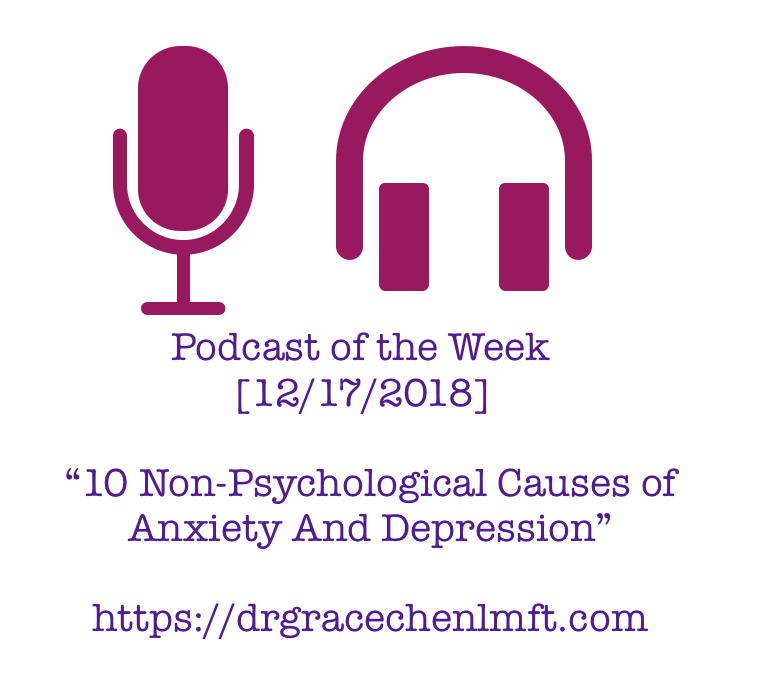 Anxiety and depression are the two most commonly known mental health issues adults facing in the USA. According to the Anxiety and Depression Association of America, 40% of the adults 18 years and older suffer from Anxiety, and 6.7%of the U.S. population age 18 and older has Major Depressive disorder.
Anxiety and depression are the two most commonly known mental health issues adults facing in the USA. According to the Anxiety and Depression Association of America, 40% of the adults 18 years and older suffer from Anxiety, and 6.7%of the U.S. population age 18 and older has Major Depressive disorder.
So, anxiety and depression are “mind” problem, right? I engage in meditation, exercise, and yoga to maintain my mental health and have read many articles about how different cardio and breathing activities can help to calm our brain and to help with depression and anxiety. So, is there anything non-psychological related that have a connection with depression and anxiety?
I came across this podcast, The Science of Psychotherapy, when I was searching the information about mindfulness and brain function. Ever since I have listened to this podcast on and off. In this episode, the hosts interviewed Micaela Monteiro-Haig, who is a nutritionist and naturopath, about ten physical issues related to anxiety and depression.
The physical issues related to anxiety and depression are digestive problems, hormonal imbalances, thyroid disease, poor blood sugar regulation, the wrong type of dietary fats, food intolerances, over-the-counter and prescribed medication, pyrrole disorder, methylation issues, and poor sleep.
There are some issues that I have never heard of, such as pyrrole disorder. However, there are some problems that I can see myself and my clients experiencing and can quickly be resolved to help the mood stabilization. As I listened to the podcast, I immediately identify my sugar intake and hydration issues have a lot to do with my thyroid and hormonal balances.
About a year ago, I found myself getting tired frequently. I try my best to maintain a good sleep schedule, and a daily routine involves running, yoga, and meditation. However, it seems that these self-care activities that used to work for me no longer works anymore. About eight months ago, it got so bad that I almost needed to have a little bit of sugar and coffee in the afternoon to get me through the end of the day.
I went to my primary care physician and asked her to do some test. She ran a lot of tests, and nothing came out significant to explain my fatigue. I decided to seek Chinese medicine help. The first thing my acupuncturist told me was to stop eating any added sugary food, such as candies, cookies, which were my “pick-me-up food” in the afternoon to help me get through the day.
Surprisingly, with the help of acupuncture to work through my hormonal and digestive systems while stopped eating the cookies, candies, and coffee in the afternoon, I found myself not that tired anymore. Now that I am feeling better, I have an acute awareness of my physical reactions after I eat sugary food. I found myself getting active and energetic for a few hours, but my energy level seemed to crush a few hours later and lasted for a few days.
After listening to this podcast, I started to drink more water regularly. In the past, I don’t usually drink in the middle of the session. Now, I make sure to drink even during the sessions. I certainly notice the difference. I can feel higher energy throughout the day, and I am much more focused. With the improved energy level and focus, I don’t need those “pick-me-up” candies and cookies in the afternoon. So, guess what’s the surprising result?! Without much more effort, I started to lose weight!
I hope you find the podcast interesting. It’s the end of the year, and the suggestion in this podcast might be helpful for your new year resolution.
Extended Resources
